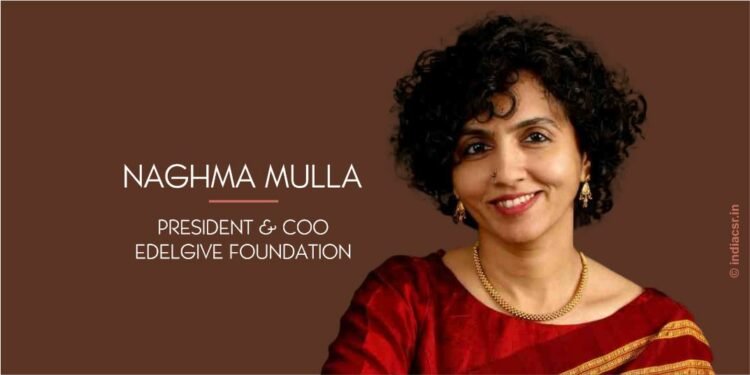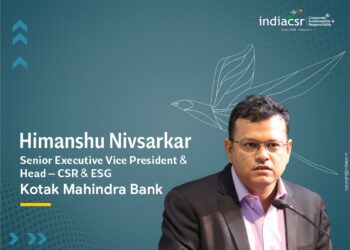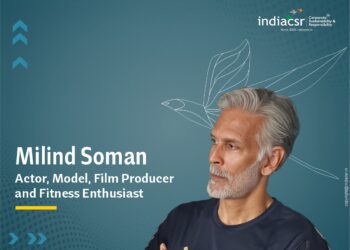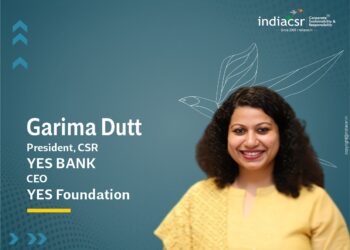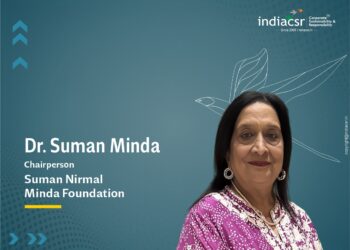EdelGive Foundation is part of the Migrants Resilience Collaborative, a grassroots level multi-stakeholder group consisting of non-profit, philanthropic, and private sector actors led by Jan Sahas for supporting migrant workers across the country.The goal of the Collaborative is to reach out to more than 10 million workers in 100 districts through a network of grassroots NGOs. Along with providingimmediate relief, this project will also focus on the medium-term future, which is about 3 to 5years, ensuring relief and support to migrant workers.
In an interview with Apresh Mishra, EdelGive Foundation’s President and COO, Naghma Mulla talks about its journey, modus operandi and the collaborative. Excerpts:
Tell us about EdelGive Foundation.
EdelGive was started in 2008 by Edelweiss Group. It is a Section 8 Company, committed towards growing small to medium sized grassroots organisations across India. It is our constant effort to match as many people from the for-profit sector to the non-profit sector. Resources are identified not just as money, but as skills and time as well.
Through initial funding from our parent organisation, Edelweiss, we were able to engage in many pilot projects and gain a lot of experience from across the country. We started with ten grants, 12 years ago, but have purposefully spread across different parts of the country today.
Our core focus areas are Education, Women’s Empowerment and Livelihoods. In Education, we largely work with government authorities to impact Student Learning Outcomes (SLOs).
In Women’s Empowerment, along with economic enablement, we work on leadership opportunities, the right to access legal support against violence and similar other work.
In Livelihoods, our focus is providing income opportunities to marginalized populations across rural areas.
How do you operate?
We engage with small and medium organisations. We support them with capacity building; we are very strongly focused on a due diligence and monitoring process. So, interested funders started joining hands with us. They co-funded with us or gave us their philanthropic kitties to manage. In the process, we became philanthropic fund managers and co-funders and advisors for those who like to engage in giving in this sector.
We have multiple partners, all each very strong in different ways. Today, we have funders in the range of foreign organisations as well as Indian funders and high net worth individuals with an interest in supporting the ecosystem.
Given that we come from a very rich background of systems management, governance, accountability, trackability, we thought, why not create ecosystems where multiple stakeholders can work together.
We have built, curated and nurtured various collaboratives that consist of stakeholders, funders and NGOs. It is a complete grant model. We engage with NGOs, funders, and service providers as well, who come for critical capacity building at critical levels.
Currently, we have created two collaboratives, namely Collaborators for Transforming Education and Coalition for Women Empowerment. This year we were also able to join the India Climate Collaborative, as a core partner. Most recently we have also become partners to the Migrants Resilience Collaborative, created by Jan Sahas, to support migrant workers affected by COVID-19 and lockdown.
Tell us more about the Migrants Resilience Collaborative
When COVID struck in early March, and the migrants started walking, many different organisations were very agitated in different ways and got down to work.The NGO Jan Sahas came up with the brilliant idea and core design of this collaborative. Through our experience with them, we understand the lens Jan Sahas takes, the way they deploy, the people, the way they interact with communities.They collaborated with 60 other NGOs in the grassroots of India who are spread across multiple districts which people like us in Mumbai, Delhi will never have a reach to. Together as a full network, they have worked with nearly 15 lakh migrants in the last three to four months.
They are ensuring that the migrants are getting immediate relief, reaching home, and are facilitated to access government entitlements.This incredible outcome under the leadership of Jan Sahas, we feel is incredible.
EdelGive became their strategic partner, advising on approaches such as, how to reach out to multiple funders, how to finesse their backend strategies as well as how to work along with the governance; so we have joined forces with them which I think will make the collaborative much stronger.
Along with us, Global Development Incubator is also a strategic partner, and here I should also tell you that EdelGive is not the only one to provide support. Many fantastic funders have joined the collaborative in the last few months and have aligned to the overall goals.
What are your plans under this collaborative?
Along with immediate relief, the goal of the collaborative will be providing medium-term support for migrants over a period of 3 to 5years. To simplify, there are three things that we are focused on. One is social security, that is, how to get them registered so that they can plug into what the government has provided. Many vulnerable migrant homes are bereft of government facilitation, because they have not been able to register themselves despite government schemes being available.
The second is Livelihoods rehabilitation. To ensure that at least 60 to 70 per cent of the affected population is reconnected back to its livelihoods given the state of affairs right now.What the virus has done has impacted our economy immensely. So our goal is also to ensure that the most vulnerable are slowly brought back into active livelihoods.
The third is protection of rights to ensure accountability of all stakeholders towards providing the needed initiatives.
What is the outreach and budget of this Programme?
We are looking to spread across 100 districts. The goal is to reach out to more than 10 million workers in 100 districts, through a network of grassroots NGOs. Over three years, we would require INR 100 crores, considering the timeline and the scale of this project.
Who are the stakeholders in the collaborative?
There are three core groups – Steering Committee, Advisory and Strategic Partners. Strategic partners are acting as a strong secretariat. At the centre of this project are Jan Sahas and the migrants.
In the Steering group, we have representation of a migrant woman as well. The interest here is to ensure that at no point the focus shifts from the migrants and the people working for them.
We are playing the role of a strategic partner in this initiative. We want to reach out to people and tell them that this is really unique, to be the largest effort that one has seen in the world this time and with this variability it has taken India pulling it off with the NGOs at front.It is phenomenal how it has launched, and the ways different people are responding to us.
Naghma Mulla is the President and COO - EdelGive Foundation. Over the last twelve years, she has enabled growth and scale for the organisations, the Foundation supports and fostered strategic partnerships within the philanthropic network. She has also developed and nurtured two large collaboratives with diverse stakeholders, that are working with some of the most vulnerable communities to support education for children and economic and social empowerment of women. Naghma is a Chartered Accountant from the Institute of Chartered Accountants of India (ICAI).

